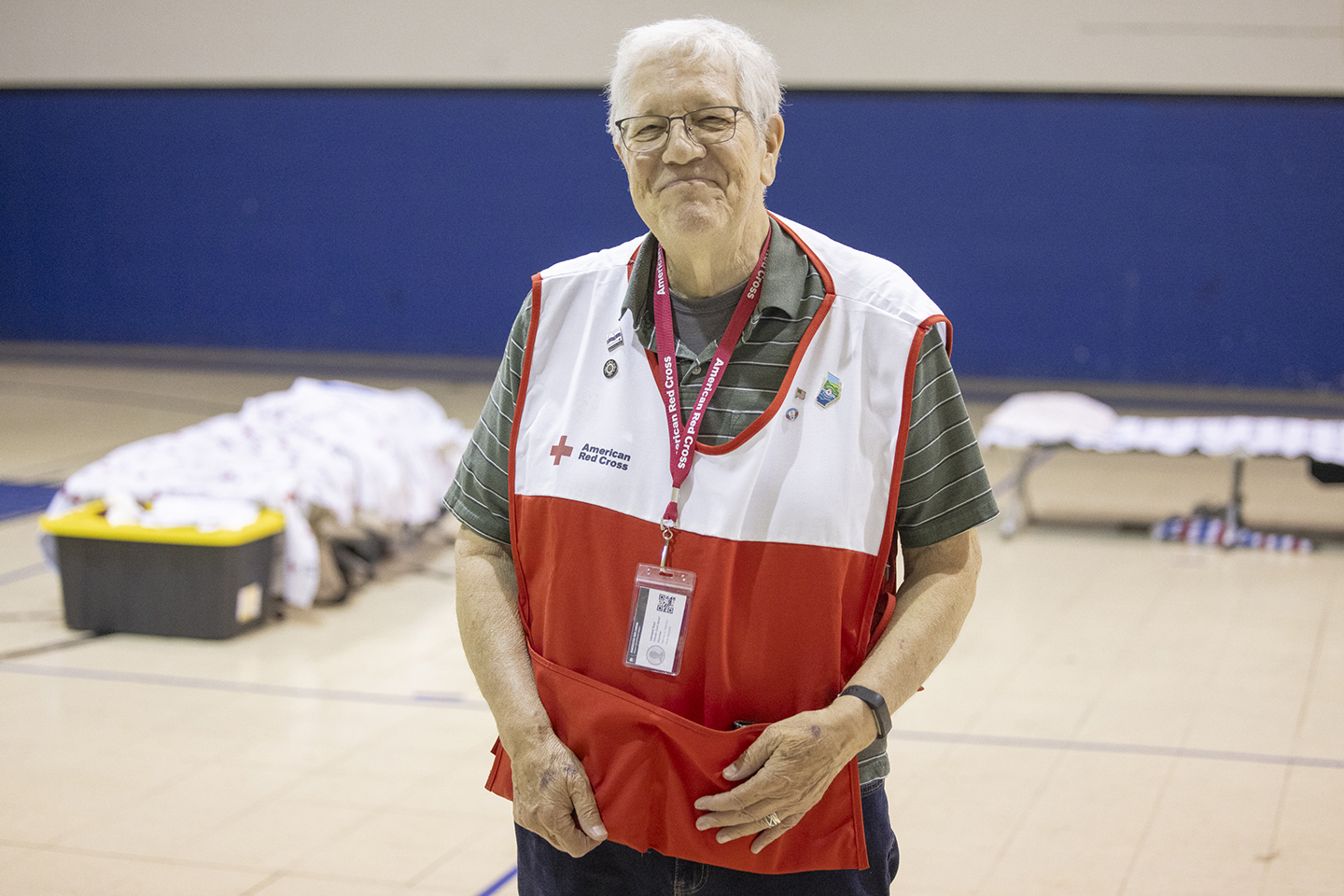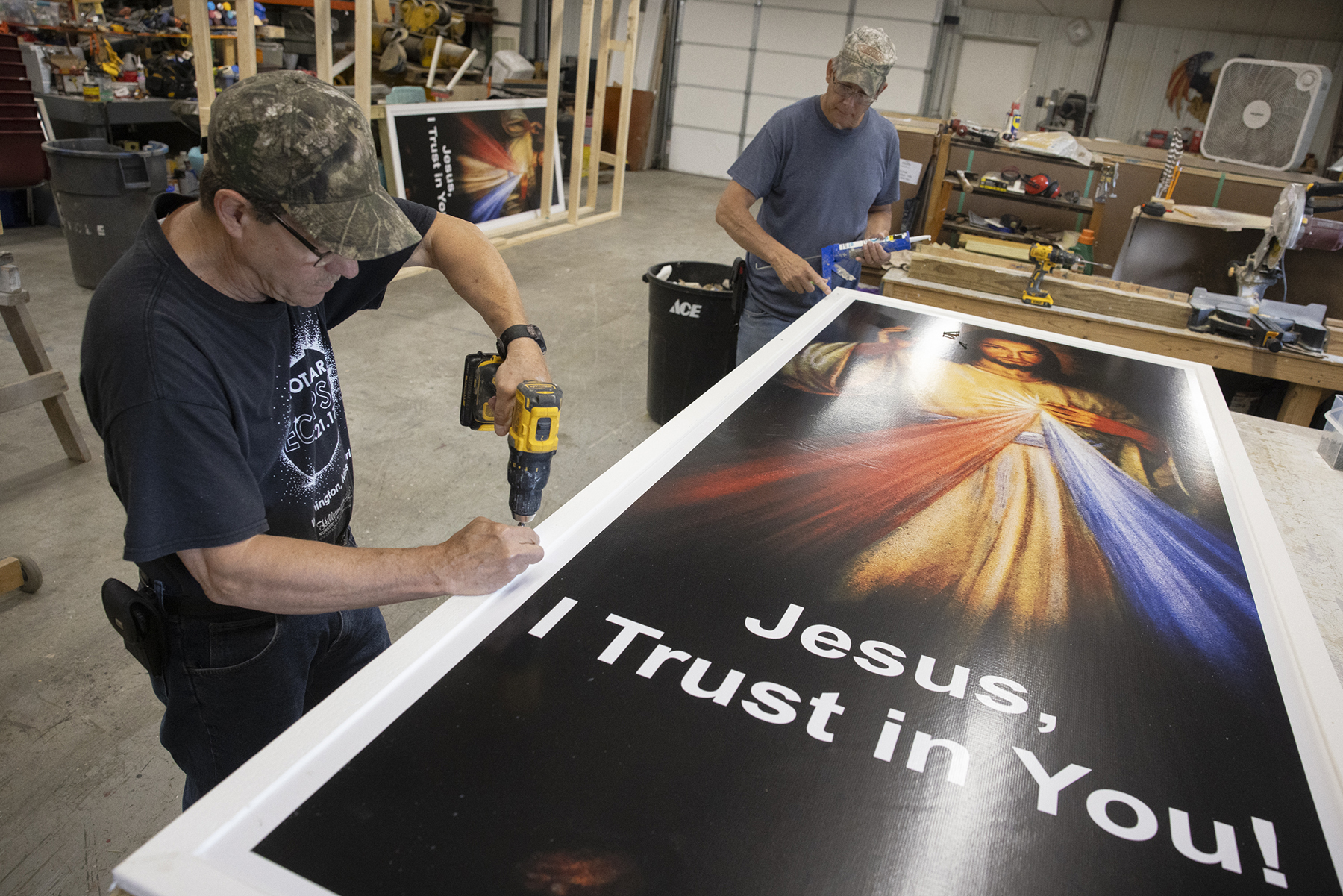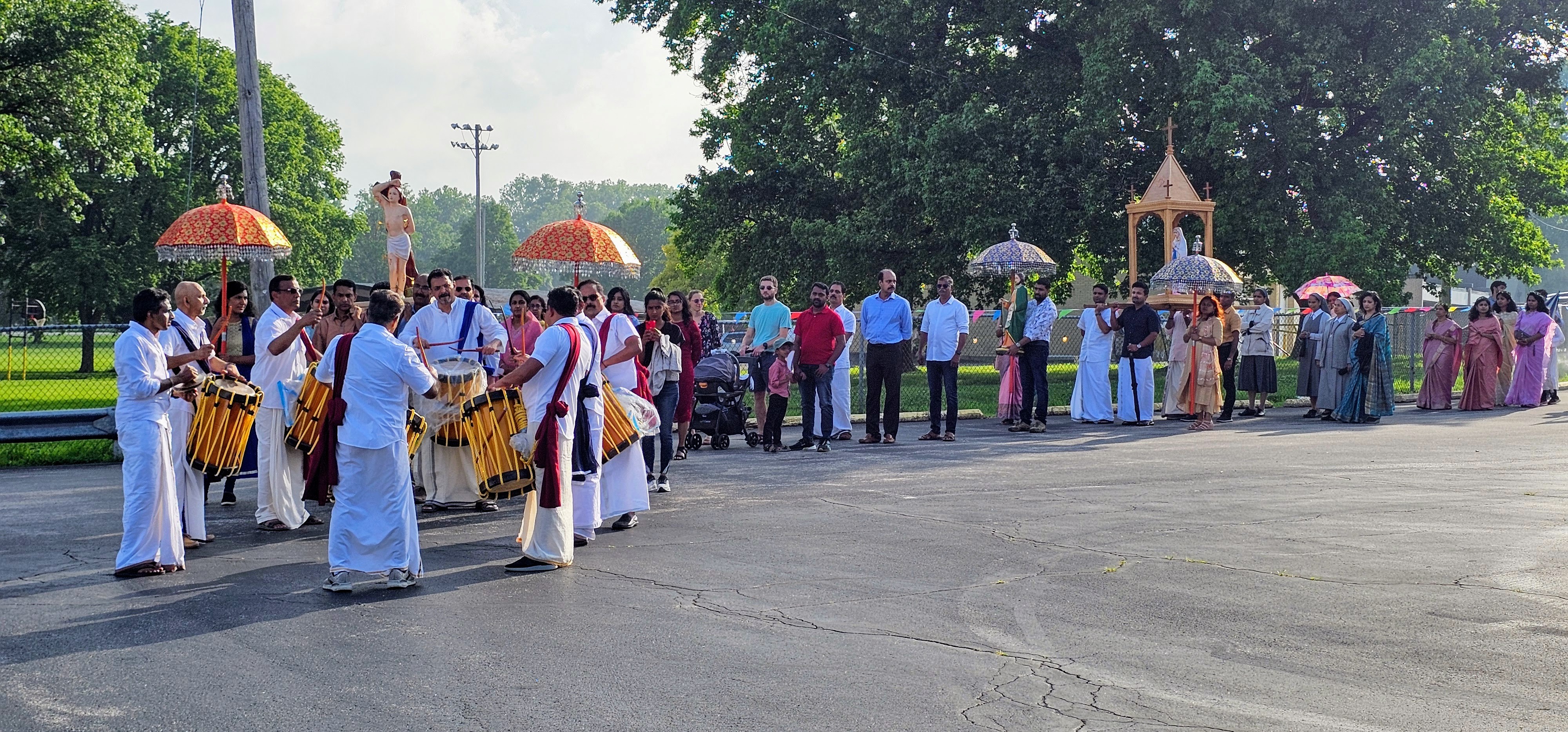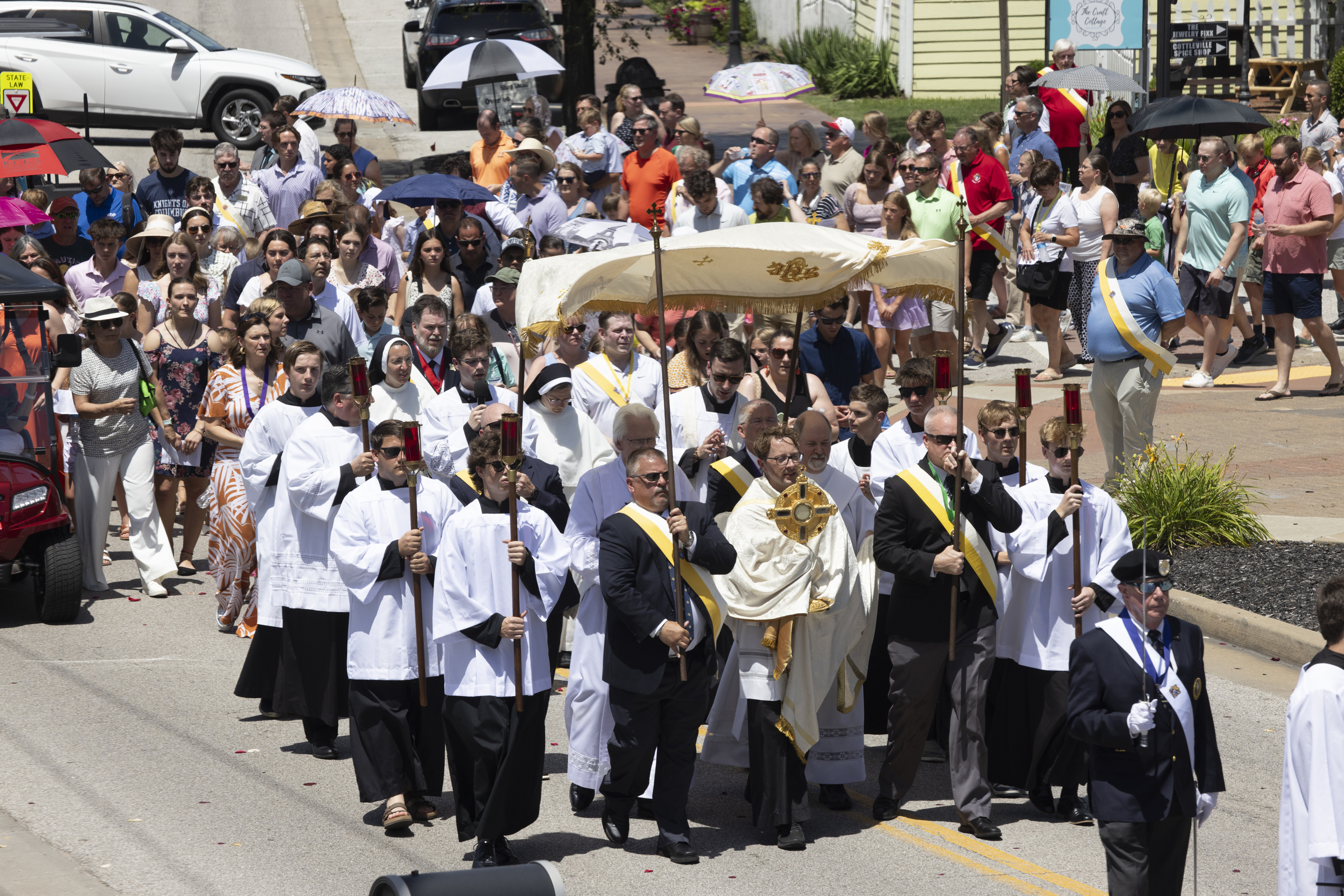Encounter with immigrants seen as ‘eye-opening’
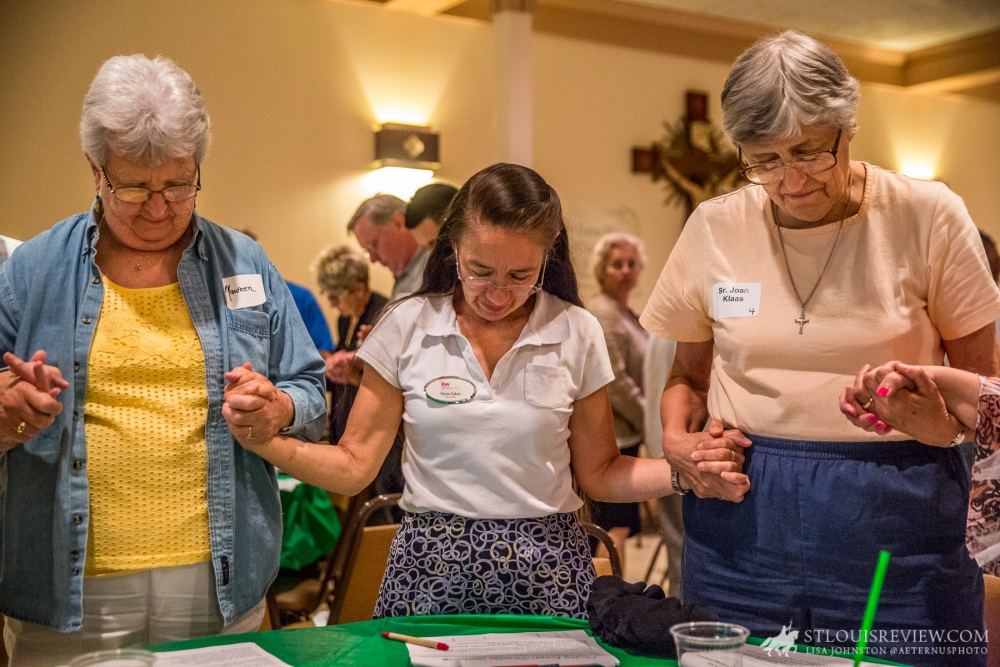
People fleeing poor farm communities in Mexico tell their stories
Sitting down with an immigrant who has come to America for a better life was eye-opening for Sister Joan Klass.
Sister Joan, who attended a “Catholic Teach-In on Migration: Creating a Culture of Encounter” June 26 with six other Sisters of the Most Precious Blood, said her group was impressed with the immigrants who attended and gave testimony during discussions in a small-group setting. “We really are impressed the immigrants are putting themselves out there,” she said. “It added a very special dimension to the evening.”
The woman she spoke with had fled a rural area of Mexico because of economic pressures that made it difficult for her and her husband and young child to survive. The trek across the border was treacherous. “They went through a terrible time, separated from their child,” Sister Joan said.
A study led by Center for Economic and Policy Research economist Mark Weisbrot estimates that the North American Free Trade Agreement (NAFTA) put almost 2 million small-scale Mexican farmers out of work, in turn driving illegal migration to the United States.
The program at St. John the Baptist Parish in St. Louis provided an opportunity to learn about the experiences of local immigrants from Latin America; what the Catholic Church teaches; and how to respond to the nation’s immigration crisis. Sponsors include the Peace & Justice Commission and the Office of Hispanic Ministry of the archdiocese, Catholic Legal Assistance Ministry, St. Francis Community Services Southside Center and the Jesuits of the Central and Southern Province.
The presentation included various facts, including that 11 million undocumented people live in the United States — 5 percent of the labor force — with almost no way to achieve legal status. An estimated 50 to 70 percent of farmworkers are undocumented. Two-thirds of the unauthorized immigrant adults have lived in the United States for 10 years or more and almost 40 percent are parents of children who are U.S. citizens.
According to the presenters, most of these adults pay some form of taxes and are not eligible for Food Stamps, Medicaid, Social Security or Medicare.
At one of the small groups, people listened to an immigrant, Tino, describe his experiences in the United States and the hardships he endured in coming here from a small farming community in Mexico. Though he is close to being on a path to citizenship — his father has permanent resident status — he asked that his full name not be used because of his undocumented status. Tino borrowed $3,000 to pay a “coyote” as the guide across the border are known, and he ended up in Arizona, eventually taking a bus to the Kansas City area where he had relatives. He worked initially as a roofer.
He works hard at two jobs now and doesn’t think he’s “taking” anyone’s jobs because his positions always lack enough applicants. The sacrifices he’s made — his mother remained in Mexico and he was unable to see her or attend her funeral, and he’s had to learn a new language and adjust to a new culture — are worth it for his children, he said. They have opportunities that don’t exist in Mexico, and he expects them to do well in school.
“I love this country,” Tino said. “I’m not from here, but I feel like this is my country.”
Deacon Jim G’Sell of St. Anthony of Padua Parish in High Ridge, said “though I profess to have only minimal understanding of the complexities and challenges of immigration, I found subject dialogue one of the best I’ve participated as an ordained deacon.”
The highlight of the program, Deacon G’Sell said, “was the moving and powerful listening session of our table guest. For me, she put a personal face on the plight of all immigrants, especially undocumented. I absolutely loved this opportunity to hear her story and be able to ask questions.”
“A change of attitude towards migrants and refugees is needed on the part of everyone, moving away from attitudes of defensiveness and fear, indifference and marginalization — all typical of a throwaway culture — toward attitudes based on a culture of encounter, the only culture capable of building a better, more just and fraternal world.”
Pope Francis’ Message for World Day of Migrants and Refugees, 2017
Sitting down with an immigrant who has come to America for a better life was eye-opening for Sister Joan Klass. Sister Joan, who attended a “Catholic Teach-In on Migration: Creating … Encounter with immigrants seen as ‘eye-opening’
Subscribe to Read All St. Louis Review Stories
All readers receive 5 stories to read free per month. After that, readers will need to be logged in.
If you are currently receive the St. Louis Review at your home or office, please send your name and address (and subscriber id if you know it) to subscriptions@stlouisreview.com to get your login information.
If you are not currently a subscriber to the St. Louis Review, please contact subscriptions@stlouisreview.com for information on how to subscribe.




